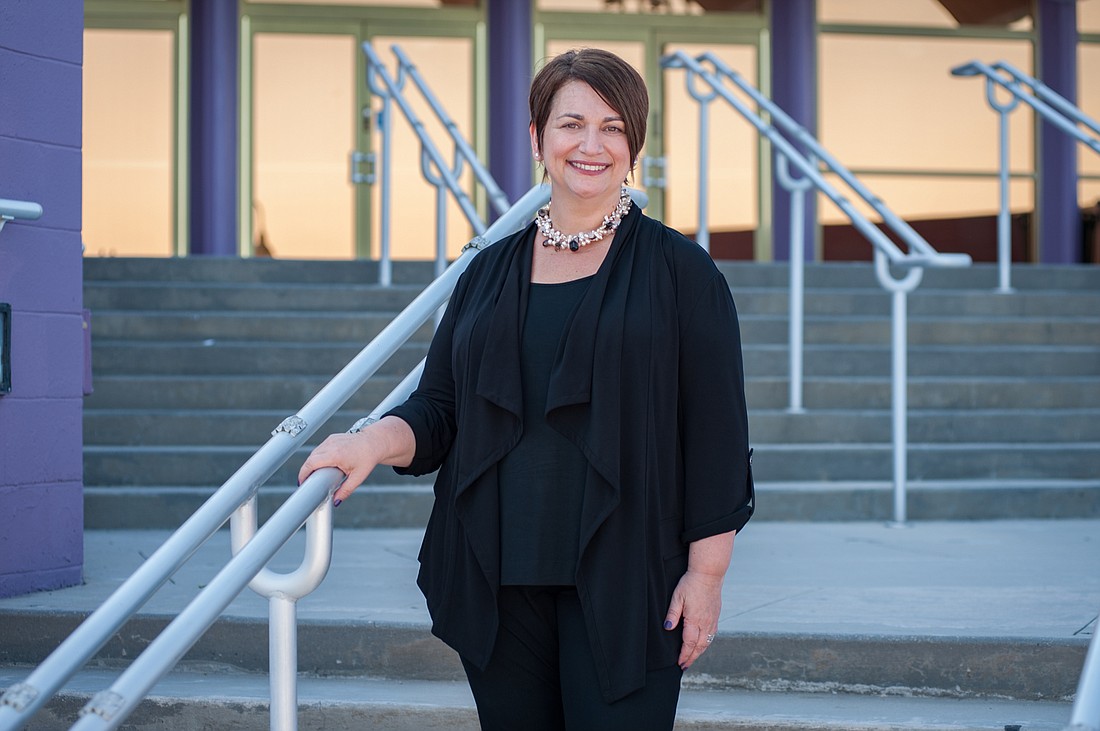- July 26, 2024
-
-
Loading

Loading

Cheryl Mendelson has a Gulf-sized challenge — and opportunity — in front of her.
The new CEO of the Van Wezel Foundation, a post she was named to earlier this year, Mendelson is charged with leading efforts to raise money for a new performing arts center to replace the current Van Wezel Performing Arts Hall, an 80,000-square-foot facility owned and operated by the City of Sarasota. That effort is one part of The Bay, an extensive 53-acre redevelopment along the Sarasota bayfront, a project that requires its own separate fundraising.
Mendelson's task starts with determining specifics of a new building, such as the size of the facility, its exact location on the property and the cost to build it.
Then it gets complicated. She will spearhead the effort to raise millions of dollars for the new performing arts center — at the same time other nearby projects, as well as hundreds of other causes, are on the hunt for donors. Fortunately, Mendelson's previous roles — among them raising $38 million for a Chicago theater — have prepared her for the responsibility. Along the way, she’s learned several keys to raising big figures, a list that includes listening, compromise and creating emotional attachments for donors.
Most recently, Mendelson was vice president of institutional advancement and chief marketing officer for Erikson Institute, a graduate school in child development in Chicago. There she led strategy and execution for fundraising, marketing and communications. Before Erikson, she was executive vice president and COO at the Harris Theater in Chicago, serving as chief architect of its $38 million capital campaign.
Mendelson is excited to bring her experience from the Harris Theater to Sarasota. The process in Chicago involved a lot of listening, she says, and understanding the needs of people who would use the theater. It also involved, at times, meeting in the middle. She says it’s important to “hear the voices of many to understand how you can best serve the community.”
“What I find is most important is really understanding what moves people.” — Cheryl Mendelson, CEO, Van Wezel Foundation
In the early stages of the process, plans were revised, and she says it was crucial to remain nimble. One adjustment? Adding high-capacity elevators to allow more people to access the theater from the street level.
When she was being recruited to the Van Wezel, Mendelson says she was impressed by the commitment from those involved with the project to understand how the community envisioned themselves at the Bay and park. “It’s absolutely critical,” she says. It’s crucial on the fundraising side but also in terms of the park becoming a vibrant center where people will gather. “You have to have the long view,” she says.
Mendelson is a veteran at raising money, having been involved with fundraising initiatives for 20 years. Her leadership takes a people-based approach. “It’s about aligning people’s values to the needs of your organization,” she says.
In working various campaigns, she's also tracked different approaches — including universities that seek to raise huge amounts of money, sometimes in the billions of dollars, that rely on technology and donor screenings. While that's fine, the process, she says, shouldn't end there. And she doesn't intend to follow a staid formula with the Van Wezel.
“I don’t believe, at the end of the day, formulaic approaches to emotionally based civic campaigns are the way you get to success,” she says. “It’s about engagement. It’s about emotional attachment for people. The thing that makes fundraising successful is that it can’t be the same for each person, because the reason you get involved isn’t the same.”
That’s not to say numbers should be ignored. Mendelson says the baseline of a capital campaign involves examining how much money is required, how many large gifts are needed and then trying to identify the resources people have. It just can’t end there. “What I find is most important is really understanding what moves people,” she says. “Why are they involved with your organization? Why should they care about a performing arts center?”
In many capital campaigns, there are also naming opportunities for donors to give money and have their names appear on a theater seat, a wing of a building or another part of the facility. “Generally recognition is important for people,” Mendelson says. It’s a way for people to extend their legacies, she says. “I like to look at it that way. Not like a shopping list. It’s not transactional. True philanthropy is not transactional.”